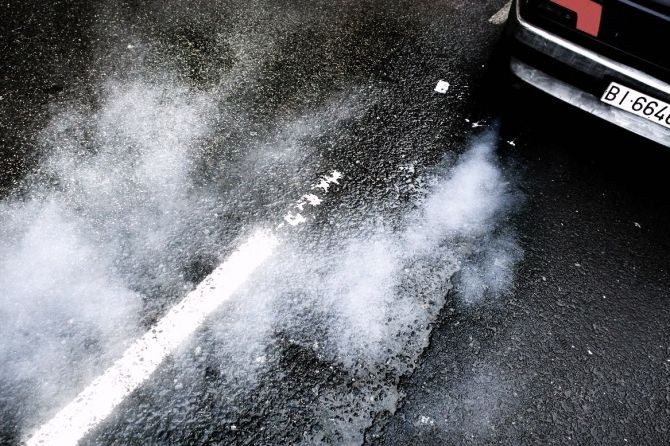Exhaust Fumes Linked To Bad Behavior in Children

Exposure to high levels of exhaust fumes, a particular type of air pollution caused by incomplete combustion of fuels like gasoline or diesel, during pregnancy was found to be “significantly associated” with attentional and behavioral problems when children were six or seven years old, according to new research.
Researchers at Columbia University in New York measured exposure levels of polycyclic aromatic hydrocarbons (PAH) in 253 non-smoking women in New York who gave birth between 1999 and 2006 and found that women exposed to more traffic pollution during pregnancy had children with more anxiety, depression and attention problems.
Scientists measured both the PAH concentration in air from personal air sampling in the women’s third trimester of pregnancy and the levels of the pollutant in the blood of the mothers and newborn’s umbilical cord. Mothers were later asked to complete a comprehensive assessment of their child’s behavior like whether their children experienced symptoms of anxiety, depression, or attention problems.
Researchers said that traffic emissions are the dominant source of the PAH pollutants measured in the latest study, and while the pollutant exposure levels were widely varied, all the mothers in the study sample had detectable levels of PAH in prenatal personal air samples.
When a mother during pregnancy inhales PAH, the pollutants can be transferred through the placenta to bind to the DNA of the fetus, forming "adducts," or pieces of DNA bonded to chemical mutagens, in blood and other tissues, according to the investigators.
The findings accounted for environmental tobacco smoke as well as maternal diet.
"This study provides evidence that environmental levels of PAH encountered in NYC air can adversely affect child behavior. The results are of concern because attention problems and anxiety and depression have been shown to affect peer relationships and academic performance," lead author Dr. Perera said in a statement released on Thursday.
The study is published in the journal Environmental Health Perspectives.
Traffic-related pollution is one of the biggest contributors to unhealthy air quality and traffic emissions has been linked to many hazardous health effects like exacerbation of asthma symptoms, lung function deterioration, birth defects and childhood cancer, according to the U.S. Centers for Disease Control and Prevention.
Motor vehicles contribute to more than 50 percent of air pollution in urban areas, according to the CDC.



























